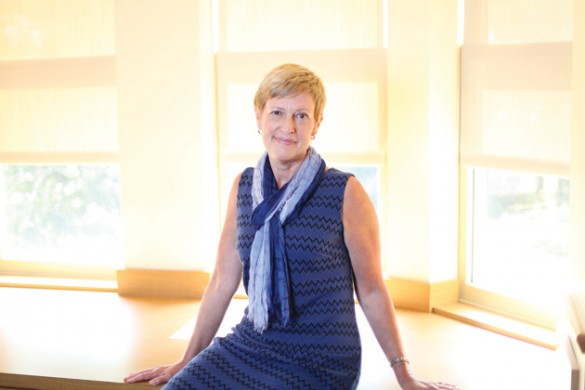
Working in trauma and critical care for most of her career, Cathy Maxwell noticed profound differences among older patients and their responses to injury.
Her curiosity led her to become a nurse researcher in this area.
“I remember two striking cases,” Maxwell said. “One was a female in her 90s who was hit by a car during her morning walk. The other was a female in her 70s who was in a car accident and sustained relatively minor injuries. Both were cared for on the trauma service and discharged to rehabilitation. The older patient recovered, but the younger patient died within one year of injury.”
Maxwell saw these same scenarios played out again and again, always asking herself: Why do some trauma patients recover well while others do not? She swapped her clinical career for a scholarly one, earning her Ph.D. in nursing science from Vanderbilt in 2012 and recently completing her postdoctoral work here as well.
“[rquote]We are finding that pre-injury cognition and physical function are part of a patient’s overall frailty,” Maxwell said.[/rquote] “Age correlates with poorer outcomes, but frailty correlates even stronger in this group.”
Along with Professor of Surgery Rick Miller and others within the Division of Trauma and Surgical Critical Care and the School of Nursing, Maxwell has recruited 188 older trauma patients for a pilot study on the influence of pre-injury impairments on patient outcomes over one year post-injury.
“I see three distinct offshoots from this work, each with its own potential impact,” she said.
First, using the pilot study data, Maxwell will seek additional funding to develop and validate a geriatric trauma prediction model—a scientifically based tool for providers and clinicians to facilitate goal-directed care. Next, since frailty is a major predictor of patient outcomes, she will promote and study the utilization of frailty screening instruments by bedside providers.
Finally, this work has significant policy implications since injured older adults are the highest users of Medicare dollars for post-acute care, an expense that exceeds $60 billion annually. Maxwell says our health care system could do a better job of optimizing transitions of care between acute and post-acute to improve efficacy, efficiency and re-admission rates.
Maxwell is enthusiastic about Vanderbilt, her faculty role and her work. “My hope is to dedicate the next 20 years of my career to advancing this area of research,” she said.
View the complete list of new university faculty for 2014-15.
View the complete list of new medical faculty for 2014.